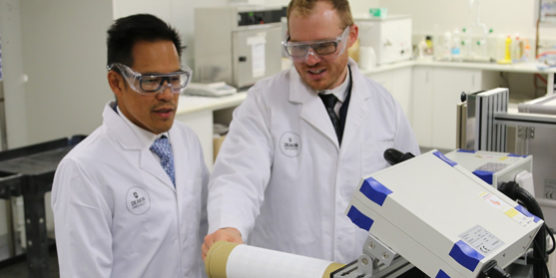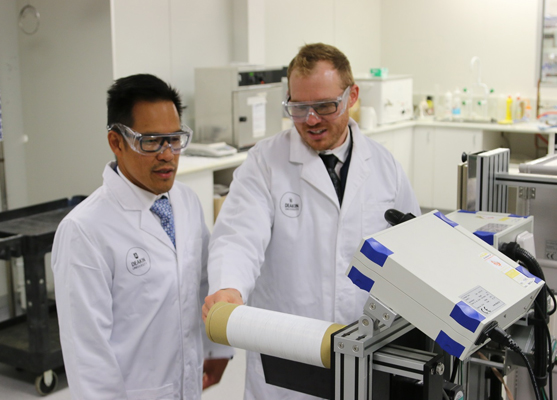Research collaboration developing sustainable textile coating inspired by bees
Re-designing materials for a circular economy
In a bid to replace the harmful chemicals used in durable water repellent (DWR) textile coatings, a new research collaboration is developing a sustainable alternative made from biopolymers.
IMCRC has granted New Zealand based biotechnology research company, Humble Bee Bio, and Deakin University $70,000 to develop and sample new textile coatings.
The 7-month project, worth a total of $566,000 cash and in-kind funding, will be based at Deakin’s Institute for Frontier Materials (IFM) and supported by the Australian National Fabrication Facility.
Veronica Harwood-Stevenson, Humble Bee Bio’s CEO and Founder, said the research collaboration would be instrumental to the success of the next stage of development for Humble Bee Bio’s novel biopolymer.
“By mimicking the properties of the solitary masked bee’s cellophane-like nesting material, we have created a biopolymer that’s water-repellent and resistant to flames, high temperatures and strong chemicals,” she said.
“This research collaboration will enable Humble Bee Bio to take our proof of concept and develop a formulation and production method for sustainable DWR biopolymer coatings.
“Australia is poised to become an advanced biomanufacturing centre of the world, and we are thrilled to be part of building that success.”

